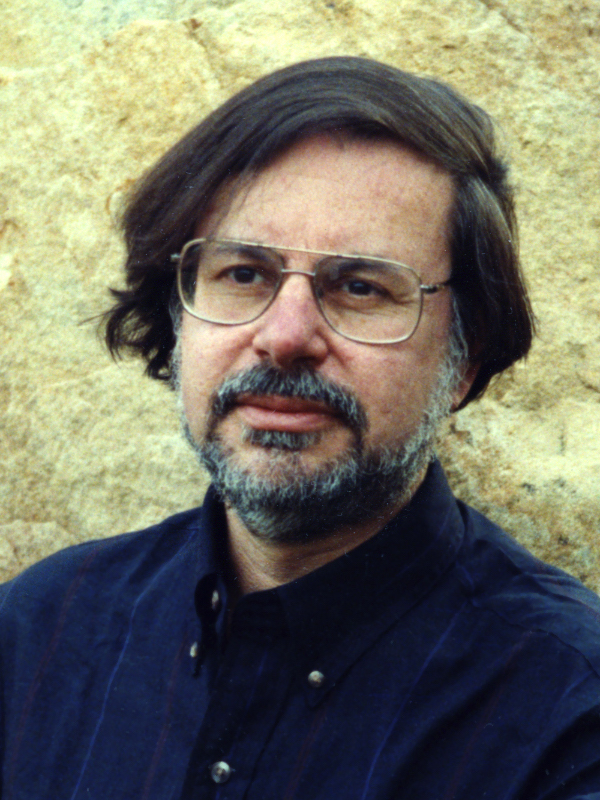Robinson Jeffers: A Poet for Our Climate
The poets of America’s great Modernist generation—Wallace Stevens, Ezra Pound, T
By Robert ZallerFebruary 23, 2017
 The poets of America’s great Modernist generation—Wallace Stevens, Ezra Pound, T. S. Eliot—have all had their moments in the sun. Robinson Jeffers, their contemporary, was ultimately overshadowed by them, but his poetry may speak to our moment as no other does. Stevens saw the world as actualized by human perception and subjectivity; Pound believed he had found the keys to human history in what eventuated as fascism; Eliot found in nostalgia for the idealized Anglo-Royalism of a bygone age a balm for the troubled present. Circumstances change, and no poet should be judged simply by his worst mistakes. But we have had no American poet since the Modernist period of truly great stature, and it may well be that Jeffers is the last major poet of our tradition in whom we can seek a guiding vision.
The poets of America’s great Modernist generation—Wallace Stevens, Ezra Pound, T. S. Eliot—have all had their moments in the sun. Robinson Jeffers, their contemporary, was ultimately overshadowed by them, but his poetry may speak to our moment as no other does. Stevens saw the world as actualized by human perception and subjectivity; Pound believed he had found the keys to human history in what eventuated as fascism; Eliot found in nostalgia for the idealized Anglo-Royalism of a bygone age a balm for the troubled present. Circumstances change, and no poet should be judged simply by his worst mistakes. But we have had no American poet since the Modernist period of truly great stature, and it may well be that Jeffers is the last major poet of our tradition in whom we can seek a guiding vision.
Jeffers’s project was nothing less than to grapple not only with the crisis of Western culture in his time but to address the question of the human relation to the seemingly indifferent cosmos disclosed by modern science, and the notion of value in a post-theistic age. In lyric poems whose sweep and grandeur—and whose particularity—remain unsurpassed, he attempted to resituate humanity in the natural world; in meditative ones, he extended this task to history; and in tragic narratives, he dramatized the human predicament against a background of civilizational decline and cosmic interrogation. His career embraced the epoch of the two world wars, the dawn of the atomic age, and the ecological devastation threatened not only by weapons of mass destruction but by the general impingement of humanity on the habitat that sustained it. He did this directly, unflinchingly, and in terms that address our current situation with startling perspicacity.
The key to Jeffers’s vision was his insistence on the primary, essential reality of the external world, planetary and cosmic. He saw this in terms of a transcendent value, accessible through aesthetic perception but not definable by it, that he ultimately identified with a divine immanence which manifested itself both in natural particulars and in cosmic process. Jeffers did not arrive at this vision without a searching and difficult engagement with the science of his time, which he recognized as its dominant episteme, and it remained grounded for him in the sweep and magnificence of the central California coast on which he lived almost his entire adult life. In terms that included modern physics and astronomy and Darwinian biology, he refurbished the Romantic sublime of the 19th century as a basis for revisioning and resanctifying the world.
At the same time, Jeffers saw the mass civilization of his time as increasingly divorced from “the strong earth” on which it depended in hyperurbanization, social introversion, and technological exploitation. As he put it in a key text, now some 90 years old, describing the moral and material devastation of his own California:
They have done what was never done before. Not as a people takes a land to love it and be fed,
A little, according to need and love, and again a little, sparing the country tribes, mixing
Their blood with theirs, their minds with all the rocks and rivers, their flesh with the soil: no, without hunger
Wasting the world and your own labor, without love possessing, not even your hands to the dirt but… heartless machines, houses of steel: using and despising the patient earth…
Oh, as a rich man eats a forest for profit and a field for vanity, so you came west and raped
The continent and brushed its people to death. (“A Redeemer”)
Jeffers had it all in these few prescient lines: the failure to respect the land, the casual genocide of its native peoples, the replacement of husbandry by agribusiness, the reign of profit and “vanity,” and of hatred—a hatred that would ultimately redound on itself—over love. At the same time that the land was prostituted and the skies and waters polluted, however, the denizens of mass society were individually isolated and collectively vulnerable: “We have gathered vast populations incapable of free survival,” he wrote in “The Purse-Seine,” “…each person in himself helpless, on all dependent.” Such societies lost their political independence as well, distracted by the “toys” of modern civilization: “No, but consider… Men sold for toys” (“The Broken Balance”). Jeffers would not have been surprised in the least by our world of video games, computer simulations, social media, and 24/7 fake news cycles; he would have expected it all. Nor would the present worldwide drift of democracy toward autocracy and the rise of charismatic religious cults have been unexpected; he described all this too in his own time.
The advent of the nuclear age, the unchecked population explosion, and the degradation of the biosphere all quickened Jeffers’s sense of impending disaster, and he foresaw catastrophe awaiting us: “The polar ice-caps are melting, the mountain glaciers / Drip into the rivers, all feed the ocean; / Tides ebb and flow, but every year a little higher. / They will drown New York, they will drown London” (“Star-Swirls”). If he valorized the cosmos, it was because he had come to view material creation as penetrated by divine consciousness, but also because he felt that our own human hopes were ultimately bound up with our ability to situate ourselves within an ecology that embraced not only our planetary environment but a universal order as well. His poetry embodied this sense of mission, and of the high destiny that he felt it was yet within the human project to fulfill. At the same time, he offered no theological and certainly no political shortcuts; the road he showed us was inseparable from tragedy. His vision is tough-minded and wholly unsentimental, and it asks from us much. But it also offers, as a reluctant admirer, the Nobel laureate Czeslaw Milosz pointed out, something we are badly in need of at our historical moment: courage.
Resources
- Jeffers, Robinson. The Collected Letters of Robinson Jeffers, with Selected Letters of Una Jeffers. Three volumes. Ed. James Karman. Stanford University Press, 2009-2015.
- —. The Collected Poetry of Robinson Jeffers. Five volumes. Ed. Tim Hunt. Stanford University Press, 1988-2001.
- —. The Selected Poetry of Robinson Jeffers. Ed. Tim Hunt. Stanford University Press, 2001.
- —. The Wild God of the World: An Anthology of Robinson Jeffers. Ed. Albert Gelpi. Stanford University Press, 2003.
- Karman, James. Robinson Jeffers: Poet and Prophet. Stanford University Press, 2015.
Image: Hawk Tower at Robinson Jeffers's Tor House in Carmel, CA | Credit: Harvey Barrison via Flickr (cc)
 Author, Robert Zaller, is Distinguished Professor of History at Drexel University. His books include The Cliffs of Solitude: A Reading of Robinson Jeffers (Cambridge University Press, 1983) and Robinson Jeffers and the American Sublime (Stanford University Press, 2012). Author, Robert Zaller, is Distinguished Professor of History at Drexel University. His books include The Cliffs of Solitude: A Reading of Robinson Jeffers (Cambridge University Press, 1983) and Robinson Jeffers and the American Sublime (Stanford University Press, 2012). |
Sightings is edited by Brett Colasacco, a PhD candidate in Religion, Literature, and Visual Culture at the University of Chicago Divinity School. Subscribe to receive Sightings in your inbox twice a week. You can also follow us on Facebook and Twitter.

